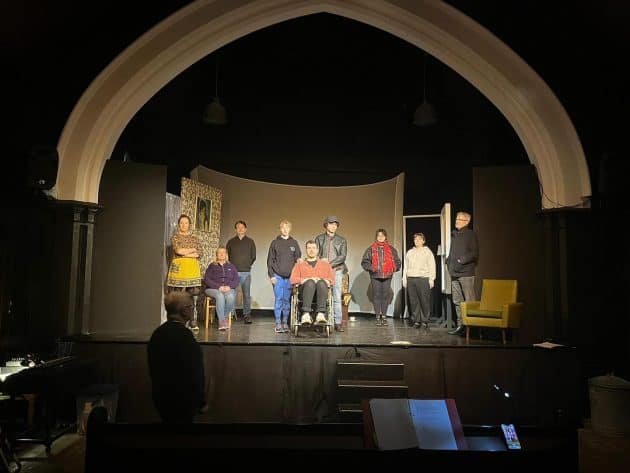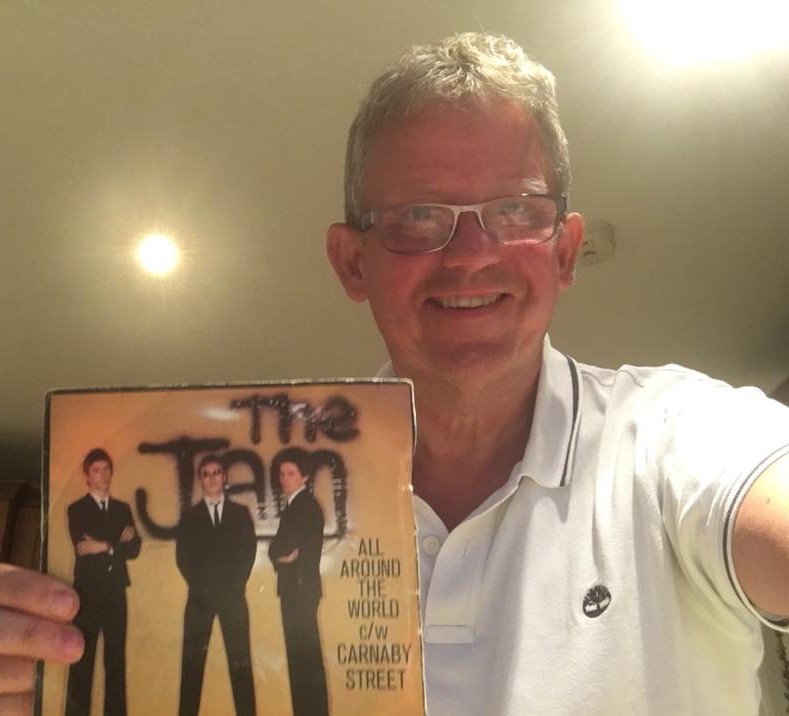[ad_1]
For many years now the bulk of what is passed off as “working class” based drama in Belfast makes my skin crawl. Not to mention “comedy”. It is so often middle-class people writing and performing a caricature of how South Belfast or Ballyhackamore sees the working class, replete with irreformable, irrational bigotry and mispronunciations of words to generate a laugh from an audience heavily bought into the caricature. There is rarely any empathy shown towards the characters and even less of an effort made to understand them. So I avoid them.
That’s why I felt the need to submit this piece. Because it doesn’t have to be like that and it isn’t necessary to travel far to get a much more accurate and empathetic portrayal of the Belfast working class, written by writers from that background and not ashamed of it. Two plays I’ve watched in the same venue in the past month have uplifted me greatly and they both deserve a wider awareness.
I attended the first one on Saturday last – “Me Oul Segocia” by Stewart Love. I’ll admit to a certain bias here in that the author was my late uncle and one of the great role models in my life. The play – written in the 1970s and first performed at the much-missed Arts Theatre in 1980 – is set in a generic Belfast street as the events of 1969 started to drive communities apart. The play deals with the relationship between two widows, their only sons and their girlfriends and emphasises both the tragedy they experienced and more importantly the dignity.
The plot charts the relationship of the two twentysomething sons and that of their mothers. One of the two families – the Dorans – are the only Catholic family in the street and are being threatened by dark forces with what will happen to them if they don’t leave the street. I won’t elaborate as I wouldn’t want to ruin the plot, but both families suffer equally from the ensuing events while managing to maintain their decency and dignity. Not an easy task for them and not an easy subject to write about without betraying one’s own bias or jaundiced interpretation of the events with the years of hindsight we possess. But the author pulled it off in black and white and the incredible cast of this most recent production performed wonderfully to project the innate humanity and decency of the true Belfast working class that I’m just about old enough to remember living and growing among.
Love based the events in a Protestant street as that is what he knew, having grown up in Julia Street in the lower part of the Newtownards Road. But he also understood things from the other perspective having taught at Kelvin School off the Grosvenor Road when the Troubles erupted and that “Protestant” school found itself on the wrong side of the peaceline and cut off from the pupils’ homes when the Westlink was built. But realistically you could move that generic street 250 yards away and the story for the two families would have been reversed. That’s the story. The sheer pointlessness of what was happening across the city and the inability of most of the victims to understand why it was happening to them but knowing they could do nothing to resist it. Events that ultimately sent probably hundreds of young men scurrying into illegal organisations because of a shock to their system inflicted by neighbours and even former friends. This play had to be written when it was. And from first hand experience. Otherwise it would be written from third generation hearsay with a clear picture of one community in white hats and the other in black. That’s the flaw in most of our domestic drama and literature.
I’ll also confess to a certain bias towards the second play as it was co-written by a football friend of mine, Sam Robinson. Like Stewart Love, Sam is an East Belfastman, in his case from the Ballybeen estate. Unlike Love, Sam grew up during the Troubles and was confronted by them as a young man, That play was “Stuck in the Middle with you”. This one had a small cast portraying RUC officers in a meat wagon in a potentially dangerous situation. The dark humour one would expect from such a grouping was very prevalent throughout the play, but again the confusion and ultimate dignity of ordinary people finding themselves in the most extraordinary situations shone through the jokes.
Sam and his collaborator Trevor Gill have used these 5 characters to address many issues facing RUC members and they do so in a largely sympathetic manner on a human level. But the play doesn’t shy away from contentious issues around the force, including but not restricted to collusion, alcoholism, misogyny, sectarianism. Those issues are dealt with thoroughly and honestly but the real story is similar to “Me Oul Segocia” – the story of ordinary people confronted with the most extraordinary of circumstances and having to deal with them. The authors succeed superbly and the ending of the play is an incredibly raw and moving one. Another triumph.
So what has all this got to do with East Belfast? The connection is that both plays were produced by the Bright Umbrella theatre group and performed at the group’s base in the Sanctuary Theatre at the bottom of Castlereagh Street in the east. The group – led by Creative Director Trevor Gill – is a better kept secret than it should be as its commitment to perform dramas like the two named here has added a very necessary but often missing dimension of work about real Belfast without revisionism, gloss or patronising humour. Hospitalisations in 2003 meant I missed Sam Robinson’s other plays – “One Saturday Before the War about the Glentoran side that won the first ever European trophy in 1914, and “Guy Mitchell’s Dog’s Dead Pass It On” about his childhood years in 1970s Ballybeen – when they were performed at the Sanctuary. But I’m off to see “Mitchell” at the Lyric in January and “Stuck in the middle” will also be touring Northern Ireland. Check them both out if you get the chance.
Now how do we get “Me Oul Segocia” into the Lyric?




Ian Clarke spent 36 years in sales & marketing for newspapers in Northern Ireland, England and Scotland – including the Belfast Telegraph, Wolverhampton Express & Star, Northern Echo and The Herald (Glasgow) after graduating from QUB in Political Science. Glentoran supporter.
Discover more from Slugger O’Toole
Subscribe to get the latest posts sent to your email.
[ad_2]
Source link



